E. Coli Symptoms and Causes
It’s estimated that 265,000 people contract E. Coli every year in the United States and that close to 100 of those people don’t survive the disease. That means that this is something we need to discuss and learn more about. With the warm weather and related parties and BBQs just around the corner, now is a good time to brush up on E. Coli symptoms and causes.
E. Coli is an abbreviation for Escherichia Coli. Escherichia coli are bacteria found in our environment, in foods, and in the intestines of animals and people.
Most strains of E.Coli are harmless. However, others can make you desperately sick. Below, you’ll learn about E. Coli’s symptoms and causes and how to take necessary prevention steps.
This is why I grow my lettuce: The causes of ecoli in lettuce need addressing. It comes from defecation in the fields from workers with poor hygiene standards and bosses who don’t allow them proper breaks. Hand washing is almost non existent as well.
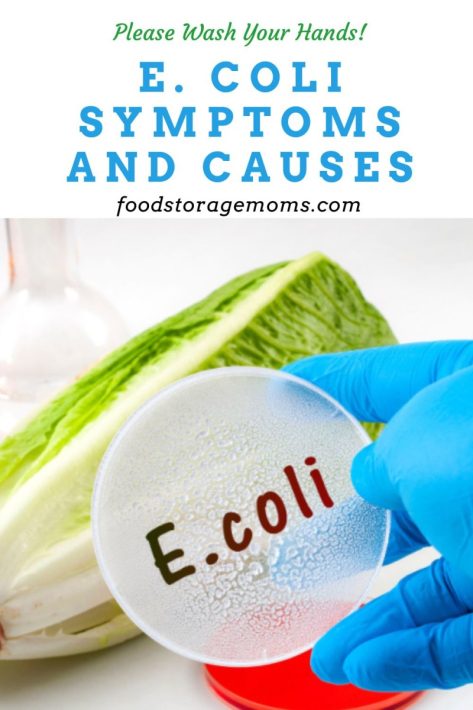
Romaine E. Coli
I started growing my lettuce indoors using a hydroponics system called AeroGarden. They had a rough year last year and shut down, but I recently received an email indicating they will reopen in 2025, this year! You can use your seeds with this product, which is a real plus AeroGarden Where I buy my garden seeds: SeedsNow
One of the main reasons I got the AeroGarden unit was to grow safe Romaine lettuce. For years, Romaine has been one of the most frequently contaminated veggies from E. Coli. I love salads and wanted to make sure I could grow quality lettuce varieties safely.
E. Coli Symptoms and Causes
Knowing you have this illness is the first step in fighting an E. Coli infection and trying to reduce the chance of spreading it to others. Below, you’ll learn the symptoms of an E. Coli infection and how you could have contracted the disease. Keep in mind that symptoms and causes can be different for different people.
Symptoms of E. Coli
The symptoms of E.coli can vary for each person. However, there are some classic symptoms that most people will complain about. These symptoms include:
- Bloody diarrhea is usually present
- Severe stomach/abdominal cramps
- Vomiting and general nausea
- Low fever (101 degrees or less)
- Signs of dehydration from loss of body fluids
Most E. Coli infections clear within 5 to 7 days; however, some infections can get severe or even life-threatening. About 5% to 10% of people who are diagnosed with E. Coli will develop a life-threatening complication called hemolytic uremic syndrome.
What is Hemolytic Uremic Syndrome?
Hemolytic Uremic Syndrome is also known as HUS. HUS usually develops around 7 days after you first notice symptoms. It is a condition that affects the blood and blood vessels, destroying blood platelets, causing a low red blood cell count, and kidney failure.
HUS results when the E. Coli toxins cross from the intestines to the bloodstream and damage your small blood vessels. Symptoms of HUS include:
- Decreased urination
- Feeling very tired
- Losing pink color in cheeks
If you have symptoms of HUS, it is essential to seek emergency care, as your kidneys could shut down.
Causes of E. Coli
There are various causes of E. Coli infection, but it is important to note that contamination originates from nearly invisible feces particles. Exposure to the infection has resulted in the following ways:
- Contaminated Food, including leafy greens like spinach and lettuce
- Consumption of raw foods, unpasteurized milk and juice
- Water that has not been disinfected
- Contact with cattle, sheep, and goats
- Contact with feces of infected people
In addition, some foods are considered high risk for contracting the E. Coli infection. These foods include:
- Unpasteurized apple cider
- Soft cheeses made from raw milk
- Undercooked meat
People have become infected by eating undercooked hamburgers/ground beef, swallowing lake water while swimming, touching animals at petting zoos, and not washing their hands well after using the toilet.
How Long Does it Take to Get Sick?
Once you have contracted the E. Coli bacteria, you will usually feel sick within 3 to 4 days. However, the symptoms can start as early as 1 day and last as long as 10 days after the exposure.
When to Contact the Doctor
If you have diarrhea that lasts longer than 3 days, a fever higher than 102 degrees, blood in your stool, or so much vomiting you can’t hold anything down, it is time to contact a healthcare provider.
How are E. Coli Symptoms and Causes Diagnosed?
E. Coli infections are typically diagnosed through laboratory testing of a stool sample. Labs determine if the bacteria is present in your stool. The labs will test for the presence of Shiga Toxins in your stool, which detects E. Coli.
Treatment for E. Coli
Unfortunately, an illness caused by E. Coli can’t be treated. No treatment can cure the infection, relieve symptoms, or prevent complications. Rest and fluids are the best way for most people to fight infection. We are always told to drink plenty of fluids each day. This is particularly vital if you get this illness!
In addition to rest and fluids, you’ll want to avoid taking antidiarrheal medication like Imodium. This is because the medication slows your digestive system down, preventing your body from getting rid of the infection.
If the infection turns into Hemolytic Uremic Syndrome, you will be hospitalized and given supportive care such as IV fluids, blood transfusions, and kidney dialysis.
Ways to Boost Your Immune System
When you’re sick, your immune system is fighting to stay afloat. Whether you have E. Coli or any other sickness, the key to getting and feeling better is boosting your immune system.
Check out my post 18 Simple Ways to Boost Your Immune System and Natural Remedies that Really Work for ways to boost your immune system naturally.
How to Prevent the Spread of E. Coli
E. Coli infections start when you swallow the bacteria. Newborns, children, older adults, those with a weak immune system, and pregnant women are at a greater risk of contracting the infection.
It is found in tiny, usually invisible, particles of human or animal feces. Because you can’t see the bacteria, here are the best ways you can prevent the spread of E. Coli:
Practice Proper Hygiene
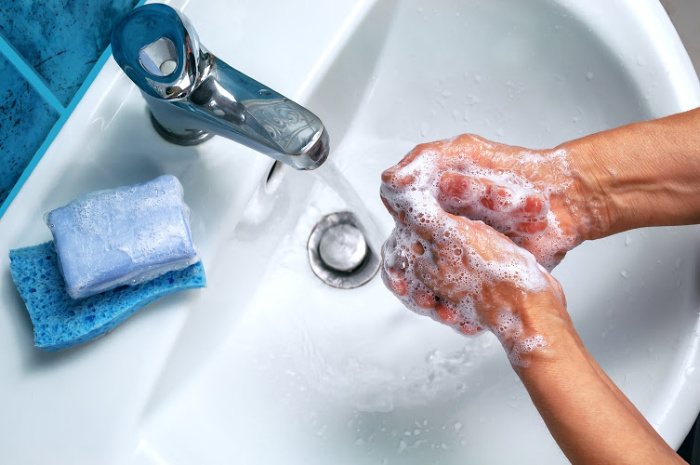
Proper hygiene goes hand in hand with good handwashing. If you want to prevent the spread of E. Coli, this is when you should wash your hands:
- Wash your hands after using the bathroom and changing a baby’s diaper.
- Properly wash your hands BEFORE AND AFTER preparing or eating food.
- Thoroughly wash your hands after having contact with animals, including animals in your backyard.
- Wash your hands before preparing a bottle and feeding your infant or toddler food.
- Wash both your infant’s pacifiers and your hands after touching them.
In addition to washing your hands, follow these other proper hygiene tips:
- Keep anything that enters your mouth or another person’s mouth clean. This includes pacifiers and teethers.
- If soap and water aren’t available, use an alcohol-based hand sanitizer. It needs to have at least 60% alcohol in it (Check the label).
- Wash fruits and vegetables under cold running water.
- Cook your meat thoroughly.
- The internal temperature for steaks and roasts should be at least 145 degrees to kill harmful germs.
- Beef and Pork should be cooked to a minimum of 165 degrees.
- Always use a meat thermometer to check your meat’s temperature.
- Don’t cross-contaminate food. Please wash your hands, counters, cutting boards, and utensils after they touch raw meat to help prevent cross-contamination.
- Try not to swallow water at lakes, ponds, or pools.
Final Thoughts
As we plan meals for our families and neighbors, this is a perfect time for E.Coli to sneak into our food. Always wash your hands, sanitize your food area, and cook and store food properly. E. Coli is not something you want to get!
Another thing to consider is that diseases such as E. Coli are more prevalent when a disaster happens. This is because of the lack of clean running water, the inability to store food properly, and the lack of ways to sanitize. The threat of E. Coli is very real, even in a world where we can prevent it. However, we should be prepared for a world where we can’t prevent it. How prepared are you? Start with these 30 Items You Need to Survive a Pandemic.
Don’t forget to pin this E. Coli post to Pinterest so you can find it when you need it! USDA Chart On E.Coli
Have you ever had E. Coli? Please share your story with me in the comments below! May God bless this world, Linda
Copyright Images: E. coli Outbreak Romaine Lettuce AdobeStock_238973581 By Victor Moussa, Soapy Hands In Sink AdobeStock_118533074 By Volodymyr Shevchuk

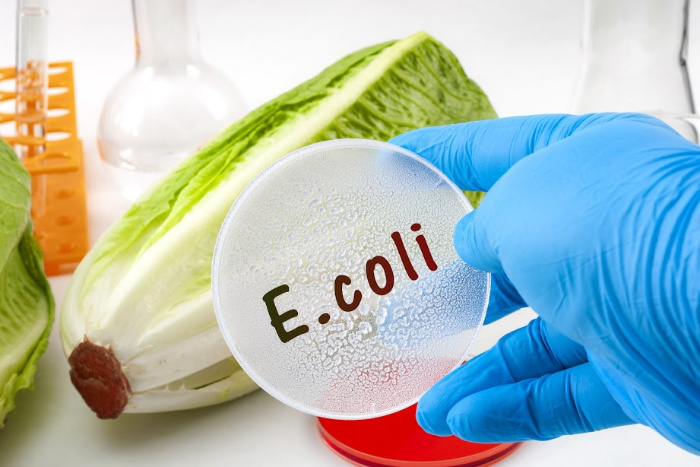



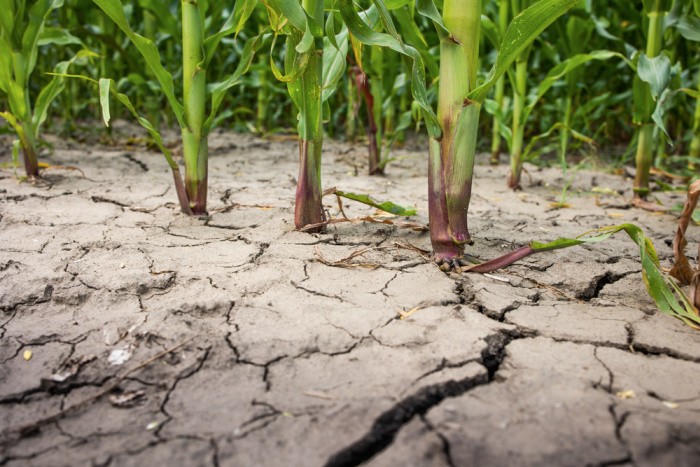






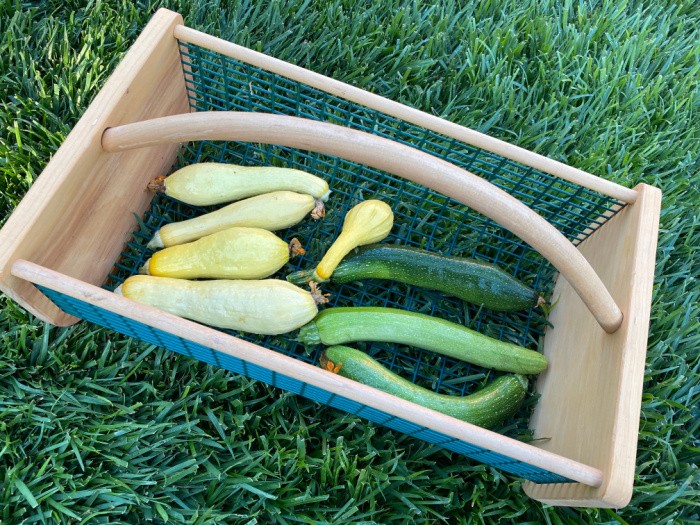


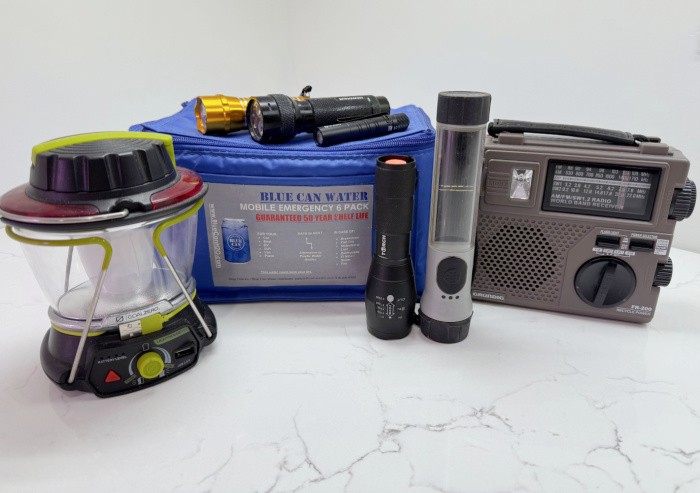
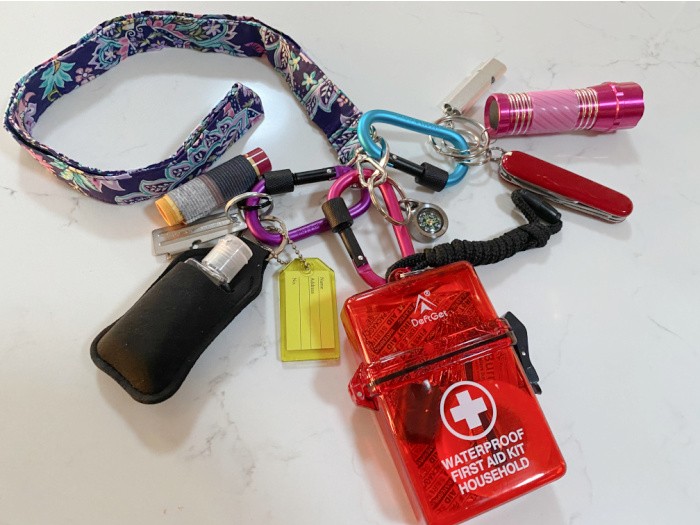





Linda ~
“265,000 people contract E. Coli every year” seems very low!! I would venture to say that this number may just be the ones who seek medical treatment rather than the number of people who actually do succumb to the bacteria! E. Coli is a scary illness and what scares me the most is that we hear mostly about the “restaurants” where people appear to come in contact with the bacteria (same for salmonella!). Makes one not want to eat out.
Anyone with any sort of compromised immune system and young children are more susceptible to this, of course.
I also wonder how much of the “scare” is produced by just having more readily available information? 50 years ago, there wasn’t the intensity of news as there is now.
For those who eat out (even infrequently): you should be aware that your local health agency conducts inspections of restaurants and eateries in your area. You may be able to get information on these inspections by newspaper or on-line. I find them helpful in deciding when and where to eat out on the occasion when I do go out. I have also kept track in the past of those local places that have bad reviews more than a time or two – just a handwritten note to myself and I didn’t keep track of places I would not go to anyway. These inspections let you know about the cleanliness of restaurants, not any diseases that are present, however. But, if I find out a restaurant has a poor inspection regarding cleanliness, I don’t want to go there!
Hi Leanne, I bet you’re right on the 265,000 being the ones that are reported through maybe the CDC. I’m sure there are more but we can only talk about the ones reported today. I believe social media makes us more aware of the E.Coli. The restaurants scare mt too! Great idea about checking out where it’s safe to eat. Linda
Linda ~
It isn’t just restaurants that scare me!! They do but all of the recalls on lettuce, meats, etc., from grocery stores scares me as well!
Hi Leanne, I just ordered some Earth Boxes, I’m going to start growing lettuce and spinach inside my home asap. Linda
Linda – I hope you have better luck with your boxes than I did. This spring I will try them again but in a slightly different place on my balcony.
Hi Leanne, did you get this same brand? https://earthbox.com/ I’m going to write a post about them if they work. Linda
You have a great phrase:” intensity of news”!
Hi Wendy, I think we are all tired of reading what’s been recalled for e.coli. Good grief, we all want to stay well. Stay well, my friend, Linda
Linda ~ My boxes are from https://www.agardenpatch.com/products/ and called Garden Patch™ GrowBox™ Planter. The only thing that I don’t really like about them is the fertilizer patch. The boxes that I planted herbs in from starts with my own fertilizer/soil with fertilizer did pretty well but the ones I used their fertilizer ground cover on did not – I think there was too much fertilizer! Other than that, I loved that I could fill the bottom with water and they self watered.
Hi Leanne, now I remember that brand you told me about. My neighbor has several of the Earth Boxes, I’ll keep you posted. I’m going to buy my own garden soil and Miracle Grow fertilizer. Let’s see which one works the best. Fingers crossed, Linda
The causes of ecoli in lettuce need addressing. It comes from defecation in the fields from workers with poor hygiene standards and bosses who don’t allow them proper breaks. Hand washing is almost non existent as well.
I can go deeper into the politics of it but I’m sure most know.
Hi Matt, I added this information to the post, thank you, I totally agree. Linda